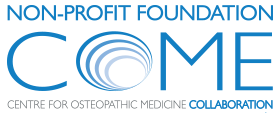Employment characteristics of individuals who received osteopathic care: a retrospective cross-sectional observational study
| By Patrick van Dun | 0 Comments
The profile and clinical presentation of people consulting osteopaths in Belgium has been studied and reported before. Information on employment aspects of such individuals is lacking. The aim of this cross-sectional observational study was to contribute to filling this gap … ABSTRACT







